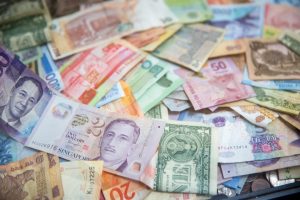Forex, or foreign exchange, is a global market where currencies are traded. It is the largest financial market in the world, with a daily turnover of over $5 trillion, making it an attractive investment opportunity for traders. However, understanding the complexities of the forex market can be challenging for beginners. In this article, we will discuss some tips on how to study the forex market.
1. Learn the basics
Before diving into the forex market, it is essential to understand the basics. This includes understanding the various terminologies and concepts used in forex trading, such as currency pairs, bid/ask spread, leverage, and margin. There are numerous educational resources available online, including articles, videos, and courses, that can help you learn the basics of forex trading.
2. Follow economic indicators
Economic indicators, such as GDP, inflation, and interest rates, can have a significant impact on the value of currencies. Therefore, it is essential to keep track of these indicators and their impact on the forex market. There are websites and news channels that provide regular updates on economic indicators, and it is recommended to follow them for the latest news and analysis.
3. Use technical analysis
Technical analysis is a method of analyzing the forex market by studying historical price charts and identifying patterns and trends. This method can help traders identify potential entry and exit points and make informed trading decisions. There are various technical indicators and tools available, such as moving averages, MACD, and Bollinger Bands, that can help traders analyze the market.
4. Monitor geopolitical events
Geopolitical events, such as elections, wars, and natural disasters, can also have a significant impact on the forex market. Therefore, it is essential to stay informed about these events and their potential impact on the market. News channels and websites can provide regular updates on geopolitical events, and it is recommended to follow them closely.
5. Develop a trading plan
A trading plan is a set of rules and guidelines that a trader follows while trading in the forex market. It includes entry and exit points, risk management strategies, and trading objectives. Developing a trading plan can help traders stay disciplined and avoid emotional trading decisions. It is essential to backtest the trading plan using historical data to ensure its effectiveness.
6. Practice with a demo account
Practice makes perfect, and the same applies to forex trading. Before investing real money, it is recommended to practice with a demo account. A demo account is a simulated trading account that allows traders to practice trading without risking real money. It can help traders test their trading strategies and gain experience before investing real money.
In conclusion, studying the forex market requires a combination of knowledge, skills, and experience. By following the tips mentioned above, traders can gain a better understanding of the forex market and make informed trading decisions. However, it is important to remember that forex trading involves risks, and traders should always practice responsible trading and risk management.






